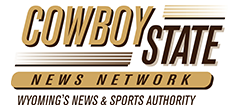
The University of Wyoming has adopted a presidential working group’s statement of principles regarding free expression and will move forward with efforts to implement the group’s recommendations.
In a message to the UW campus earlier this fall, President Ed Seidel committed to work with members of the Freedom of Expression, Intellectual Freedom and Constructive Dialogue Working Group and others “to ensure that we undertake a serious and sustained effort to support a culture of free expression and respectful discourse on this campus.”
With votes of support for the statement of principles from the Faculty Senate, the Staff Senate, the Associated Students of UW, the president’s cabinet and academic deans, the administration is now moving forward with the working group’s recommendations. One of the working group’s co-chairs — Martha McCaughey, an adjunct professor in the Department of Criminal Justice and Sociology — will lead the effort with the president.
“I want to thank this group for a very significant body of outstanding work. Further, I appreciate the input received from many of you over the summer and this semester regarding the working group’s findings,” the president said in his message to campus. “We are now moving forward to implement a number of its recommendations.”
The new “Statement of the University of Wyoming Principles” was developed by the working group last spring following consultation with external stakeholders in Wyoming and review of programs and policies at other universities; historical reports on freedom of expression and institutional neutrality in the nation; accreditation criteria; UW’s regulation on academic freedom; Wyoming’s Constitution; and the “Code of the West,” adopted as the state’s code of ethics in 2010.
“A fundamental principle is that the university plays a unique role by providing a neutral forum for the deliberation and debate of public issues,” Seidel said in his message adopting the statement. “Providing such a forum does not mean the university either endorses or condemns the different perspectives expressed. What it does mean is that, as our free expression group states, UW’s ‘adherence to impartiality reaffirms the intellectual freedom of all at UW to seek and receive information without restriction and enjoy unfettered access to all expression of ideas through which any side of a question, cause or movement may be explored.’”
Additionally, the statement says UW “recognizes and respects the liberty of students, faculty and staff as private citizens to express their opinions and identities, including concerns they may have about public institutions and the larger society. At a public university, it is inevitable that the ideas and beliefs of different members of the UW community or visitors to campus will conflict with one another. UW does not shield individuals from the free expression of ideas and criticism, including that which community members may find uncomfortable, disagreeable or even deeply offensive. The expression of criticism must respect the legal right of others to express themselves without serving to obstruct, censor or otherwise interfere with the rights of others to hear those ideas.”
The statement acknowledges that “free expression has legal limitations, including expression that is obscene or defamatory; constitutes a genuine threat or discriminatory harassment; incites imminent violence or other lawless action; unjustifiably invades privacy; interferes with the free expression rights of others; or otherwise stands in violation of the law.”
The working group also provided recommendations to operationalize, communicate and practice the principles. Implementation of the working group’s recommendations — as prioritized by the president and those with whom he consults, and led by McCaughey — will be collaborative in nature and will include ongoing faculty, staff and student input.
“Implementation of these recommendations will require significant additional work, some of which can be folded into ongoing work associated with our strategic plan,” Seidel said in his message. “This will include communication to campus through a website that will maintain a current status report of key actions being taken, and planned, to achieve these goals.”
The website has been established at www.uwyo.edu/president/freedom-of-expression/index.html. Plans are underway to give faculty, staff and students opportunities to discuss the principles this spring at a forum organized by the Heterodox Academy Campus Community at UW and in a “community of principle,” a professional development group.
Seidel’s message added: “I will continue to advocate for the university, as the working group says, to ‘support and model a culture of respectful engagement in which even the most difficult or challenging of ideas can be expressed, received and contested with grace through the practice of civil discourse and constructive dialogue.’ And I will encourage ‘people with diverse backgrounds and values to speak, write, live and learn together in a welcoming, inclusive and intellectually stimulating environment that celebrates free expression and intellectual and academic freedom.’”
The other working group co-chair was Nevin Aiken, an associate professor in the School of Politics, Public Affairs and International Studies.
